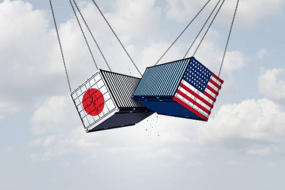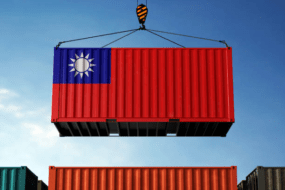- Home
- Trade News
- US Tightens Export Controls on ...
Table of Contents
Introduction
In a move aimed at safeguarding national security interests, the United States is set to introduce a series of new measures to further restrict China’s access to advanced semiconductors and chipmaking equipment. These measures, set to be unveiled this week, represent an effort by the Biden administration to refine and close loopholes in the export controls introduced last October. The goal is to prevent China from acquiring cutting-edge technologies that could potentially give it a military advantage.
Latest Rules to Restrict China’s Access
The US plans to tighten sweeping measures to restrict China’s access to advanced semiconductors and chipmaking gear, seeking to prevent its geopolitical rival from obtaining cutting-edge technologies that could give it a military edge.
The latest rules aim to refine and close loopholes from curbs announced last October, according to people familiar with the matter. The Biden administration is seeking to strengthen controls on selling graphics chips for artificial intelligence applications and advanced chipmaking equipment to Chinese firms, the people said, asking not to be named because the rules aren’t yet public.
The US will also impose additional checks on Chinese firms attempting to evade export restrictions by routing shipments through other nations, and add Chinese chip design firms to a trade restriction list, requiring overseas manufacturers to gain a US license to fill orders from those companies.
The US unveiled the original chip restrictions a year ago in an aggressive attempt to curtail China’s technological development, a step the Biden administration argued is necessary for national security. China has bristled at the restrictions and accelerated investments in building its own domestic capabilities.
The updated restrictions will be published early this week, people familiar with the deliberations said. A spokesman for the National Security Council declined to comment, as did a spokeswoman for the Commerce Department’s Bureau of Industry and Security. Chip-related stocks fell in Asia after Bloomberg’s report on the latest restrictions. In Japan, Tokyo Electron Ltd., Advantest Corp. and Disco Corp. all fell at least 4%, while South Korean stocks such as Hana Micron Inc. also slid.
Implications for Global Trade
The Biden administration has drawn criticism because of perceived shortcomings in the original export controls. The US unveiled the original restrictions before getting the support of key allies, notably the Netherlands and Japan, which allowed chip equipment companies in those countries to continue selling advanced gear to Chinese customers.
That helped facilitate China’s progress in developing its domestic tech capabilities. Huawei Technologies Co., a Chinese telecommunications giant at the heart of US-China tensions, quietly introduced a new smartphone in August powered by an advanced, 7-nanometer processor. A teardown of the phone revealed the chip was produced by a Chinese company, demonstrating manufacturing capabilities well beyond where the US had sought to stop its advance.
The achievement cast doubt on Washington’s ability to thwart Beijing’s technological ambitions, and spurred political pressure for the Biden administration to impose more sanctions on Huawei and its chipmaking partner, Semiconductor Manufacturing International Corp. The US has begun a formal investigation into the Huawei phone. Any resulting restrictions on Huawei or SMIC would be a separate process from the new export control rules.
“While the Huawei phone is not itself a major national security issue for the United States, what the chip inside signals about the state of the Chinese semiconductor industry absolutely is,” Gregory Allen, director of the Wadhwani Center for AI and Advanced Technologies at the Center for Strategic and International Studies, wrote in a report this month. “These advanced chip production capabilities will inevitably be made available to the Chinese military if they have not been already. Thus, the Huawei and SMIC breakthrough raises many tough questions about the efficacy of the current U.S. approach.”
Several companies have objected to the Biden administration’s strategy. Peter Wennink, chief executive officer of Dutch chip equipment leader ASML Holding NV, publicly opposed the measures and warned that Chinese companies would develop competing technology. US companies such as Nvidia Corp. — the leader in graphics chips used to develop artificial intelligence services — have also questioned the long-term effectiveness of limiting trade.
Nevertheless, the Biden administration is seeking to address several outstanding issues with the tighter rules, particularly the development of AI and the shipment of technologies through other countries.
The new controls on graphics chips cover components called accelerators, which are used in data centers to train AI software. The Biden administration is tweaking the parameters which govern the export of those chips to China — a move that comes after Nvidia developed a China-specific model to work around last year’s curbs.
In addition, the rules will restrict shipments of certain chips to Chinese companies’ overseas subsidiaries and affiliates, and begin requiring a license to export prohibited technologies to countries that could be used as intermediaries.
At the same time, Washington acquiesced to companies’ calls for fewer blanket restrictions, as industry leaders say they need to sell into the world’s largest chip market. Under the new rules, firms will be allowed to export to China all but the most powerful consumer graphics chips, which are typically used in gamer PCs, and will have to notify the US government before shipping a select few consumer chips at the cutting edge.
Nvidia and rival Advanced Micro Devices Inc. rely on their massive consumer chip sales to fund their research and development of data center technology.
The updated rules will not include restrictions on Chinese companies’ access to US or allied cloud computing services. The Biden administration is instead planning to solicit feedback and assess potential national security risks of that access. In a separate announcement last week, the US said it would begin developing a framework for regulating access to cloud computing services, particularly those of Chinese firms.
As the new export controls take effect, the global trade data landscape will undoubtedly be impacted. Trade Data Pro will continue to monitor and analyze these developments, providing businesses with crucial insights into the evolving trade dynamics between the United States and China. Stay tuned for further updates on this important issue.
Conclusion
In conclusion, the US’s efforts to tighten export controls on semiconductors and chipmaking equipment have far-reaching implications for the global trade landscape. These measures are part of a broader strategy to address national security concerns, but they also raise questions about the effectiveness of such controls in an interconnected world. The balance between safeguarding national interests and maintaining open trade relations remains a complex challenge.
Your Trusted Source for Trade Data: TradeData.Pro.
Trade Data Pro stands as a beacon of reliability in the sphere of trade data, originating from the economically robust and politically stable environment of Singapore. This esteemed platform is a brainchild of the Commodities Intelligence Centre, a notable government-linked entity and a synergistic joint venture involving Zall Smartcom, Singapore Exchange (SGX), and Global eTrade Services (GeTS). Since making its debut in 2018, Trade Data Pro has garnered acclaim for its expansive coverage, cost-effectiveness, and swift response time, earning prestigious accolades such as the Singapore Quality Class (2020), Stevie Award Gold (2021), Crozdesk 2023 Happiest Users Award, 2023 Slashdot Top Performer, and 2023 Source Forge Top Performer.
With widespread recognition, Trade Data Pro has been spotlighted in numerous reputed news outlets, including Bloomberg, Business Times, MarTech Series, ACN News, and more, further cementing its status as a reputable source in the industry. User satisfaction remains paramount, reflected by stellar average ratings of 5 stars on leading review platforms like SourceForge, Capterra, G2, and others. This unanimous user acclaim speaks volumes about the platform’s unyielding commitment to quality and customer satisfaction.
In a world where procuring pivotal data for unmasking trends, pinpointing market openings, keeping tabs on the competitive landscape, and comprehending supply chain potential has traditionally been daunting, Trade Data Pro simplifies this endeavour. The platform meticulously collates and curates shipment data mandated by governmental import-export filings, presenting it as actionable business intelligence. This treasure trove of information facilitates a crystal-clear understanding of goods movement across international borders and is encapsulated within the largest searchable trade database globally available.
For businesses eyeing the vibrant Vietnamese industry, TradeData.Pro offers up-to-the-date data. Engage with our intuitive platform to discover products that align with your interest by exploring our trade database demo: Vietnam Import Export Data. For historical insights into penetrating new markets, kindly visit our Trade Database Demo.
For a dynamic understanding of our platform’s operations, view the video linked below or visit YouTube. With Trade Data Pro, you’re not just accessing data; you’re unlocking a gateway to informed, strategic global trade decisions.
AI Technology Biden Administration Chip Manufacturing Export Regulations Global Trade Impact National Security Semiconductor Export Controls Semiconductor Industry Technology Restrictions US-China Trade








